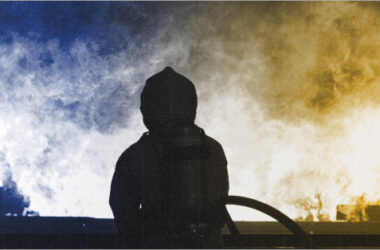In today’s rapidly evolving world, ensuring the safety of both residential and commercial spaces is paramount. Among the most critical safety measures that every building, business, and establishment must follow is fire safety. But here’s the question: do you know what a Fire Safety Certificate is, why it’s essential, and how to obtain one in India? In this comprehensive guide, we’ll dive into everything you need to know about Fire Safety Certificates, from understanding their importance to the step-by-step process of getting one in India.
The Urgency of Fire Safety
Every year, fire-related incidents lead to devastating consequences across the world, with significant loss of life and property. In India alone, fire accidents claim thousands of lives annually, highlighting the dire need for proper fire safety measures. The Fire Safety Certificate (FSC) serves as a formal acknowledgement that your building or property has been thoroughly checked and meets all necessary fire safety standards.
Whether you are a business owner, property manager, or homeowner, having a Fire Safety Certificate isn’t just a regulatory requirement—it’s an essential step towards safeguarding lives and property. With the increasing number of high-rise buildings, commercial hubs, schools, hospitals, and even residential complexes, fire safety has become more critical than ever before. But how can one ensure that their property adheres to these stringent standards? That’s where the Fire Safety Certificate comes into play.
What is a Fire Safety Certificate?
A Fire Safety Certificate (FSC) is an official document issued by the local fire department or other competent authority, certifying that a building or establishment complies with fire safety standards. This certificate serves as proof that the building has been inspected, and all fire safety systems and equipment are in place and functional.
A Fire Safety Certificate is not only a legal requirement but also a reflection of a building’s commitment to ensuring the safety of its occupants. It signifies that the property has undergone an extensive fire safety audit, and all potential hazards have been addressed, from fire extinguishers to emergency exits.
Why is a Fire Safety Certificate Important?
So, why should you go through the process of obtaining a Fire Safety Certificate? Let’s explore its key benefits:
Legal Compliance
In India, obtaining a Fire Safety Certificate is mandated by the National Building Code (NBC), the Model Building Bye-Laws (MBBL), and various state-level fire safety regulations, including specific provisions under The Maharashtra Fire Prevention and Life Safety Measures Act, 2006 and similar laws in other states. Without it, you may face legal penalties, fines, or even the closure of your business or residential complex.
Safety of Occupants
The most crucial benefit is ensuring the safety of everyone in the building. A fire safety inspection ensures that emergency measures are in place—such as fire alarms, extinguishers, and escape routes—protecting both the residents and visitors.
Insurance
Many insurance companies require a Fire Safety Certificate before issuing property or fire insurance. Without it, you may find it challenging to secure adequate coverage, and in the event of a fire, you may not be able to make an insurance claim.
Reputation and Trust
For businesses, having a Fire Safety Certificate adds to your credibility and shows your commitment to safeguarding employees and customers. It helps build trust, which is vital in today’s competitive market.
Peace of Mind
Finally, obtaining a Fire Safety Certificate provides peace of mind, knowing that your property has met the necessary standards for fire safety.
Who Needs a Fire Safety Certificate in India?
It’s not just large corporations that need a Fire Safety Certificate. In fact, it applies to a wide range of establishments across India, including:
- Residential Buildings: High-rise buildings (typically those above 15 metres in height, as per the National Building Code), apartment complexes, gated communities, and other residential buildings are required to obtain an FSC.
- Commercial Establishments: Businesses, retail shops, offices, malls, restaurants, and hotels must ensure they are fire-safe and certified.
- Schools, Hospitals, and Public Buildings: Public spaces, educational institutions, and healthcare facilities must comply with fire safety regulations.
- Industrial Units: Factories, warehouses, and industrial plants must adhere to fire safety standards to protect their workers and inventory.
Essentially, if your building accommodates a significant number of people (whether for living, working, or shopping), you’ll likely need a Fire Safety Certificate. The specific requirements depend on the local fire department and state regulations.
Legal Framework and Regulations for Fire Safety in India
Understanding the legal framework behind fire safety in India is essential to obtaining a Fire Safety Certificate.
National Building Code (NBC)
The National Building Code of India lays out detailed guidelines and regulations for fire safety standards. It includes aspects like fire-resistant materials, emergency exits, fire alarm systems, and extinguishers. While the NBC itself is not legally binding, it serves as the reference standard for state-level fire safety laws and building regulations across India. Compliance with the NBC is essential, and the Fire Safety Certificate acts as proof of adherence.
State-Specific Regulations
Apart from the NBC, each state in India has its own specific fire safety regulations. For instance, Maharashtra’s Fire Prevention and Life Safety Measures Act, 2006, Tamil Nadu’s Fire Service Rules, and the Delhi Fire Service Act, 2007, outline detailed provisions for fire safety compliance. It’s crucial to consult with the local fire department to understand the unique requirements in your area.
Role of the Fire Department
Local fire departments are responsible for conducting fire safety inspections and issuing Fire Safety Certificates. They assess buildings based on parameters like emergency evacuation routes, the installation of fire extinguishers, hydrants, alarms, smoke detectors, sprinkler systems, and other essential fire safety measures.
Step-by-Step Guide to Obtaining a Fire Safety Certificate in India
Now that you understand the importance of a Fire Safety Certificate, let’s explore the step-by-step process of obtaining one.
Step 1: Conduct a Fire Safety Assessment
Before you can apply for a Fire Safety Certificate, a fire safety audit is required. You will need to hire a qualified fire safety consultant or approach the fire department for an initial inspection. They will evaluate your building for fire risks, ensuring that every safety feature is in place, from fire alarms to emergency exits.
Some of the things they will inspect include:
- Fire exit routes and their accessibility.
- The presence and maintenance of fire extinguishers.
- Emergency lighting systems.
- Smoke detectors, fire alarms, and sprinkler systems.
- Electrical wiring and equipment safety.
- Availability of water tanks and hydrants.
Step 2: Implement Fire Safety Measures
Once the audit is complete, you may need to make improvements or installations to meet the required standards. This could include:
- Installing additional fire exits or signage.
- Updating electrical systems or replacing faulty wiring.
- Installing sprinklers, hydrant systems, or fire alarms.
- Ensuring fire extinguishers are properly placed and maintained.
- Training staff in fire safety protocols.
Step 3: Submit the Application
After implementing the required changes, you can submit your application to the fire department. The application must include:
- A completed application form.
- A copy of the approved building plan.
- Fire safety audit reports.
- Proof of fire safety equipment installation.
- Details of staff training on fire safety procedures.
- Any additional documents as required by the local fire authority.
Step 4: Inspection and Approval
Once your application is submitted, the fire department will schedule an inspection. During this inspection, fire officials will verify that the necessary safety measures are in place and that the building complies with the applicable fire safety regulations.
Step 5: Receiving the Fire Safety Certificate
If everything is in order, the fire department will issue your Fire Safety Certificate. This certificate typically has a validity period of one to five years, depending on your state’s regulations. After the certificate expires, you must undergo a fresh inspection and renewal process to maintain compliance.
Common Challenges in Obtaining a Fire Safety Certificate
While the process may seem straightforward, there are some common challenges building owners face:
- Delayed Inspections: In busy cities or regions, the fire department may take a considerable amount of time to schedule inspections due to a high volume of requests.
- Non-Compliance: Buildings that are not up to code may face rejection. This includes inadequate fire exits, missing alarms, or outdated electrical systems.
- High Costs: The cost of implementing fire safety measures can be high, especially for older buildings that require substantial upgrades.
Costs Involved in Getting a Fire Safety Certificate
The costs of obtaining a Fire Safety Certificate in India can vary depending on the size of the building, the complexity of the fire safety requirements, and your location. On average, costs may include:
- Consultant Fees: Hiring a fire safety expert can cost anywhere from ₹10,000 to ₹50,000, depending on the complexity.
- Installation of Fire Safety Systems: The cost of installing extinguishers, alarms, sprinklers, and other safety equipment can range from ₹20,000 to ₹1 lakh or more.
- Inspection Fees: The fire department may charge an inspection fee, typically ranging between ₹5,000 and ₹20,000, depending on the state and type of building.
Importance of Fire Safety Training and Drills
A Fire Safety Certificate is not just about having the right equipment—it’s also about preparing everyone in the building for a potential fire emergency. Regular fire drills and staff training on how to use fire safety equipment are crucial components of maintaining compliance.
Training staff to respond quickly and effectively during an emergency can save lives. Conducting fire drills regularly ensures that everyone knows how to evacuate safely, use fire extinguishers, and assist others in need.
Final Thoughts
Obtaining a Fire Safety Certificate in India is not just about complying with regulations—it’s about protecting lives and property. It’s a proactive step that can prevent loss, reduce damage, and give you the peace of mind knowing that your building meets the highest safety standards. While the process may require time, effort, and some investment, the benefits far outweigh the costs.
So, if you haven’t yet secured your Fire Safety Certificate, now is the time to act. Ensure that your building, whether residential or commercial, is a safe place for everyone. Don’t wait until it’s too late—take the necessary steps to get your Fire Safety Certificate today!








